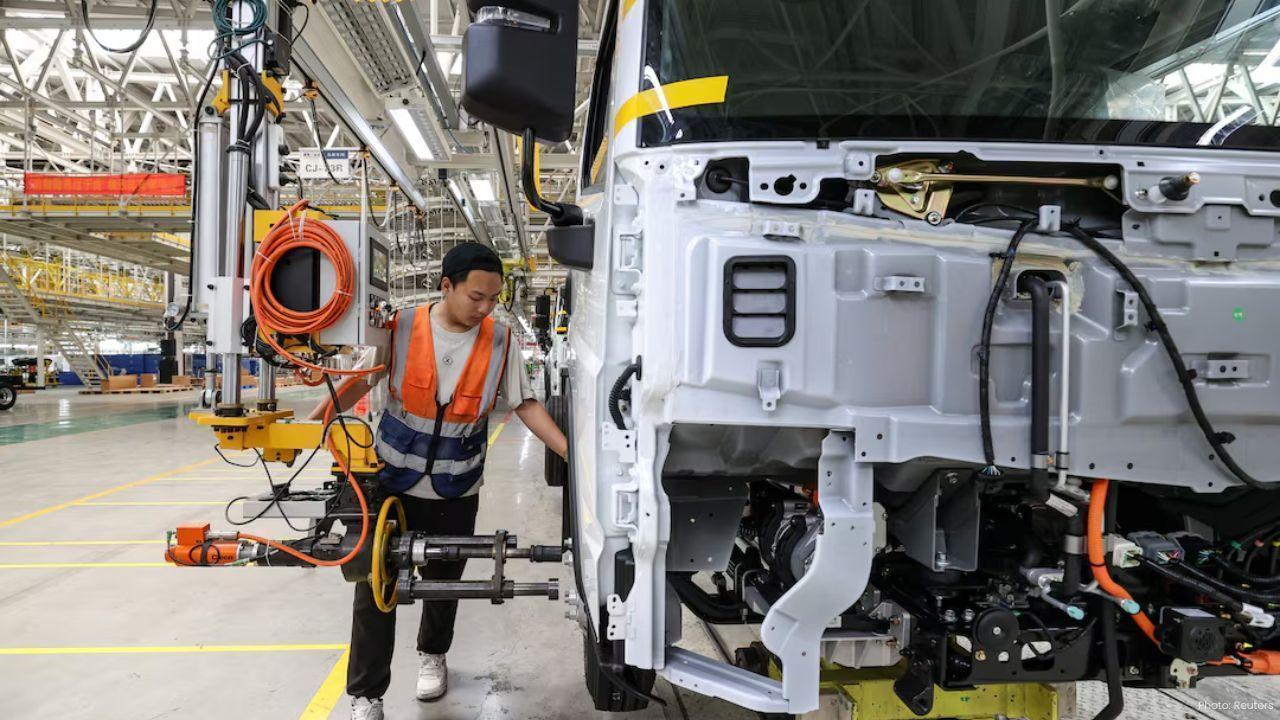
Post by : Meena Rani
In 2025, President Donald Trump introduced new tariffs on imported goods to encourage U.S. manufacturing and reduce the trade deficit. Among the items affected were commercial trucks and their parts. These tariffs added extra costs for imported trucks and components, making life more expensive for truck manufacturers and trucking companies. While the goal was to support domestic production, the trucking industry has faced serious challenges because of these tariffs.
Rising Costs for Truck Companies
One of the first results of these tariffs is higher prices for trucks and truck parts. Companies that need imported parts now pay more money, and these costs are passed down to the buyers. For example, a truck that cost $100,000 before the tariffs might now cost $110,000 to $115,000. Small and medium trucking companies, which operate on tight budgets, feel this impact most. Many companies struggle to balance higher costs while still providing goods and services.
Decrease in Orders and Production
Because trucks are more expensive, many businesses are postponing or canceling new truck purchases. Companies are choosing to repair old trucks instead of buying new ones. This has led to slower production at truck factories. As a result, truck makers have reduced work hours or even laid off workers. Some large truck companies had to let go hundreds of employees because of reduced orders and the uncertainty caused by the tariffs.
Supply Chain Problems
Tariffs also created supply chain challenges. Truck companies that used to get parts from other countries, like Canada and Mexico, now face delays and higher costs. Finding alternative suppliers takes time and money. This affects how quickly trucks can be repaired or maintained, slowing down trucking operations.
Impact on Prices and Inflation
Trucking is essential for moving goods across the country. When trucking costs go up, the price of goods also rises. Items like food, clothing, and electronics become more expensive for consumers. This leads to higher inflation, which means people have to spend more money to buy the same products.
Job Losses and Worker Concerns
With fewer trucks being sold and higher costs, companies have had to reduce their workforce. Workers in truck manufacturing and related industries face layoffs and job insecurity. The uncertainty about whether tariffs will continue or be removed adds to the stress felt by employees and their families.
Industry Reaction
Leaders in the trucking industry have raised concerns about the tariffs. They say the financial problems caused by tariffs outweigh any benefits. Trucking associations have requested that the government reconsider the tariffs to avoid harming U.S. trucking and related businesses. Industry experts stress the need for policies that support growth without creating unnecessary burdens.
The future of the trucking industry is uncertain. Companies are trying to adapt by finding domestic suppliers and changing business strategies. However, the industry still faces challenges, including higher costs, fewer orders, supply chain delays, and layoffs. How well the U.S. economy benefits from these tariffs will depend on future trade decisions, policies, and global market conditions.
Trump tariffs, trucking industry, commercial trucks, truck costs, layoffs










Advances in Aerospace Technology and Commercial Aviation Recovery
Insights into breakthrough aerospace technologies and commercial aviation’s recovery amid 2025 chall

Defense Modernization and Strategic Spending Trends
Explore key trends in global defense modernization and strategic military spending shaping 2025 secu

Tens of Thousands Protest in Serbia on Anniversary of Deadly Roof Collapse
Tens of thousands in Novi Sad mark a year since a deadly station roof collapse that killed 16, prote

Canada PM Carney Apologizes to Trump Over Controversial Reagan Anti-Tariff Ad
Canadian PM Mark Carney apologized to President Trump over an Ontario anti-tariff ad quoting Reagan,

The ad that stirred a hornets nest, and made Canadian PM Carney say sorry to Trump
Canadian PM Mark Carney apologizes to US President Trump after a tariff-related ad causes diplomatic

Bengaluru-Mumbai Superfast Train Approved After 30-Year Wait
Railways approves new superfast train connecting Bengaluru and Mumbai, ending a 30-year demand, easi